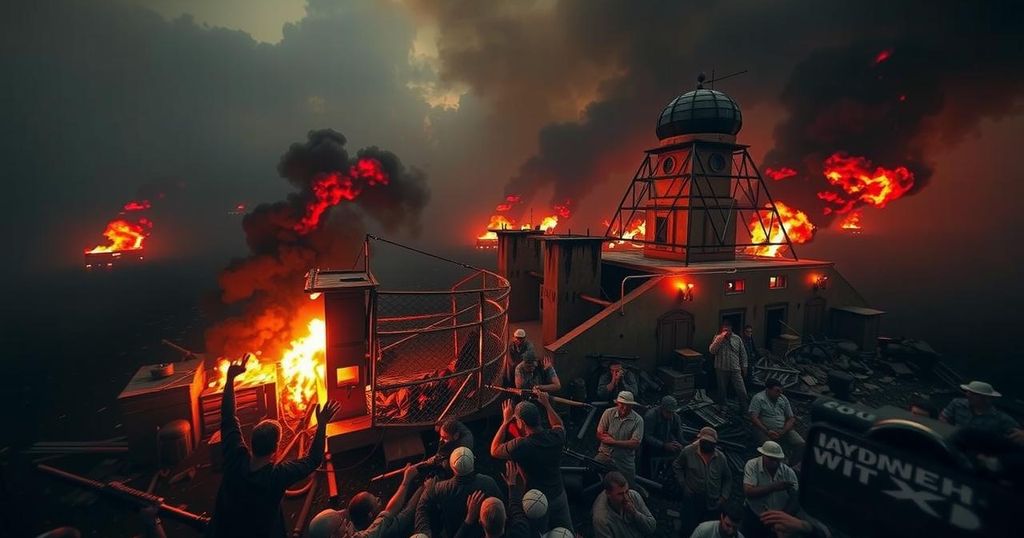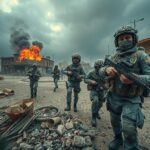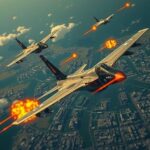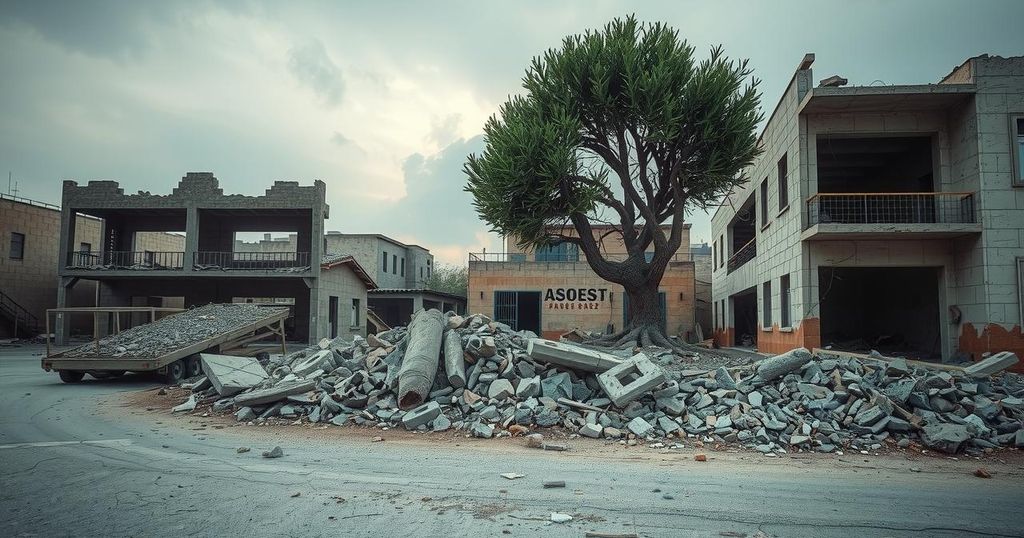Rebel Gains in Syria Reignite Civil War and Heighten Regional Tensions
The Syrian military, with Russian support, launched airstrikes in Aleppo following a surprise offensive by Islamist rebels which captured the city, reigniting the civil war. This marks a critical shift after years of relative calm, as the power dynamics in Syria appear to be changing amidst ongoing regional tensions and the involvement of global powers like Russia and Turkey. The conflict, compounded by the Kurdish situation, poses significant implications for future peace efforts.
In a significant escalation of the Syrian civil war, the Syrian military, supported by Russian airpower, has commenced airstrikes in areas that Islamist rebels notably captured in a surprise offensive earlier this week. The fall of the strategic city of Aleppo, the second largest in Syria, has reignited the conflict, creating heightened tensions across the region and igniting fears that global powers such as Russia and Turkey may become more directly involved. The offensive, initiated on November 26 by rebel groups, primarily by Hayat Tahrir al-Sham, has shifted the balance of control in a city that had remained under government authority since 2016.
Following the successful assault on Aleppo, the rebels have continued their military actions, extending their territorial control further into Hama province, demonstrating their newfound momentum. As the Syrian government pledges to retaliate, the Russian military, which has actively backed President Bashar al-Assad since 2015, has initiated airstrikes to support Syrian forces in reclaiming lost ground. This series of developments represents the most profound shift in the Syrian conflict in several years, underscoring the ongoing deaths and immense displacement since the war’s inception in 2011.
The opposition’s resurgence is largely attributed to Hayat Tahrir al-Sham, formerly the official al-Qaeda affiliate in Syria, now led by Abu Mohammed al-Golani. Despite being labeled a terrorist organization by both the United States and Russia, HTS remains a dominant faction within Idlib, a region that has been instrumental for rebel presence. Additionally, other rebel factions, armed and organized by Turkey under the Syrian National Army banner, have initiated parallel offensives contributing to the escalating situation.
The timing of this renewed conflict can be linked to a variety of regional dynamics, particularly the recent, intensified conflicts involving Iran and Israel. The focus of Iranian influence in Syria appears to be hampered, facilitating an opportunity for the rebels to capitalize on governmental distraction due to other military engagements. Consequently, the understanding reached between Russia and Turkey, which had previously created a semblance of stability in northwest Syria since 2020, is now under considerable strain, with multiple parties vying for control.
A pivotal issue remains the broader geopolitical implications of this conflict, not least concerning the Kurdish forces perceived as terrorists by Turkey. Despite Turkey’s effort to manage the situation through diplomatic channels, Turkish officials now express heightened concern regarding government aggression towards rebels. Furthermore, the United Nations’ attempts at facilitating resolutions to establish peace through proposed constitutional reforms have yet to yield substantial results, with calls for renewed negotiations from key international figures like U.N. Syria envoy Geir Pedersen.
This precarious situation, characterized by recurring violence and the challenging landscape of international alliances, highlights the ongoing complexities of the Syrian civil war, provoking considerations on future policies and the humanitarian implications stemming from the conflict.
The Syrian civil war, which began in 2011 in the wake of the Arab Spring, has led to immense loss of life, displacement, and a significant humanitarian crisis. Initially sparked by protests against President Bashar al-Assad’s regime, the conflict rapidly devolved into a multifaceted civil war involving various domestic and international actors. The landscape of the conflict has shifted multiple times, with control of key locations changing hands and the involvement of foreign powers complicating the situation further. Aleppo, a major urban center, illustrates the shifting power dynamics in Syria, having initially been a rebel stronghold before being recaptured by government forces in 2016. The resurgence of rebel activities marks a pivotal moment in the continued volatility of Syria.
The ongoing military activities led by rebels in Aleppo signify a critical juncture in the Syrian civil war, threatening to exacerbate tensions among international powers involved in the region. The historically significant capture of Aleppo underscores shifting allegiances and the complex web of conflicts persisting across the Middle East. As the situation continues to evolve, the implications for future diplomatic efforts and peace initiatives remain uncertain, with the United Nations and various regional stakeholders urged to reassess their strategies to promote stability and peace in the war-torn nation.
Original Source: www.france24.com








Post Comment